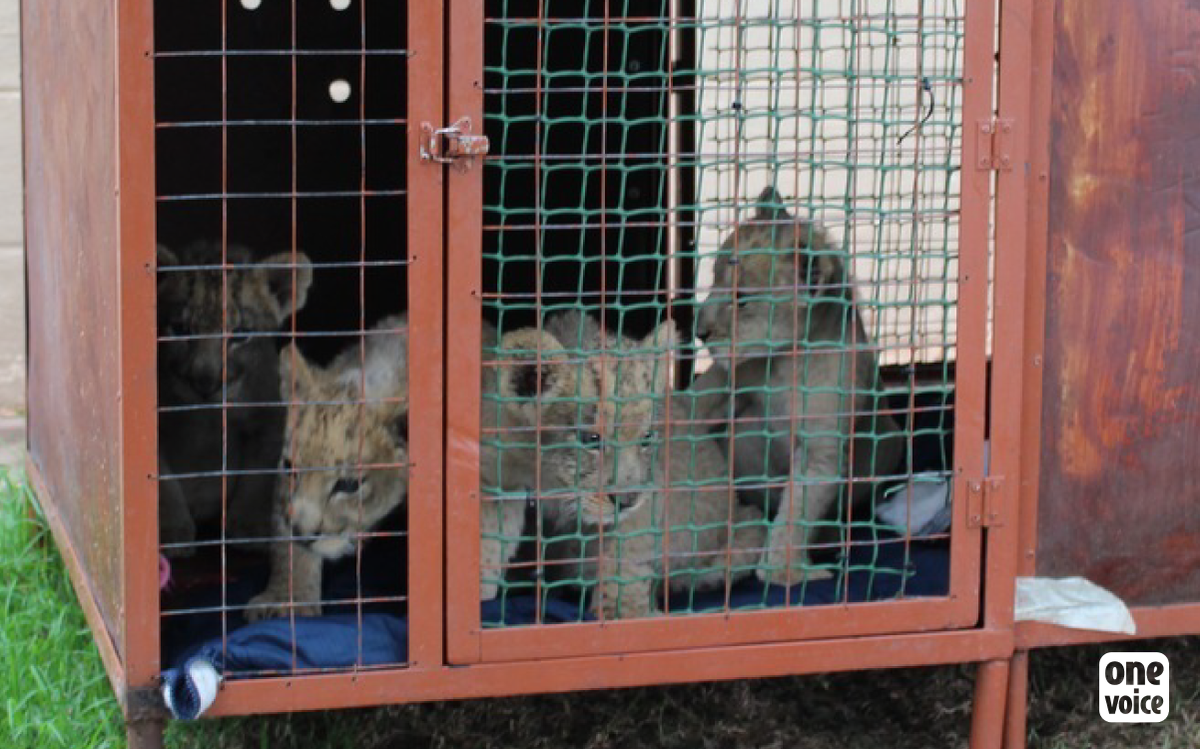

South of Africa: One Voice investigates the trophy hunting
One Voice fights to convince the international community to protect the last wild lions on the planet and end the suffering of lions in captivity. We reckon that these animals should be classified as high priority in Annex 1 of CITES, so as to put an end to all types of trade in them.
In 2015 One Voice investigators uncovered the suffering of lions in South African breeding centres. Held in cramped paddocks, they are often kept alone or forced to live alongside other cat species. Babies are torn from their mother within an hour of birth. Compelled to produce up to five litters every two years, captive lionesses are treated as mere breeding machines. The cubs are used for tourist photos. When they reach the age of three years and are less easy to control, they are sold to hunting businesses which go as far as to drug them to make them easy to stalk and kill.
In February 2015 the European Union introduced measures requiring member states to grant import licences for hunting trophies for six species, including African lions. One Voice considers these measures insufficient to protect these animals. We are putting pressure on politicians to get a total ban at European level on importing “trophies” and lion body parts. We also campaign against all forms of trophy hunting and urge tourists travelling to Africa to only take part in ethical activities.
One Voice works too to end animal abuse in French circuses. Plenty of countries have already implemented such a ban. However hundreds of circuses still roam our nation, and lions are the most common wild animal there.
Several years ago One Voice oversaw the freeing of three lions—Shada, Djunka and Nalla—who had spent their entire lives shut away in a circus caravan in the Dordogne. Kept isolated in tiny compartments measuring 1.83 m x 1.83 m, they were used as breeders. Their young were also taken away to be sold. Thanks to One Voice and the Born Free Foundation, these three lions were relocated to a sanctuary in South Africa.